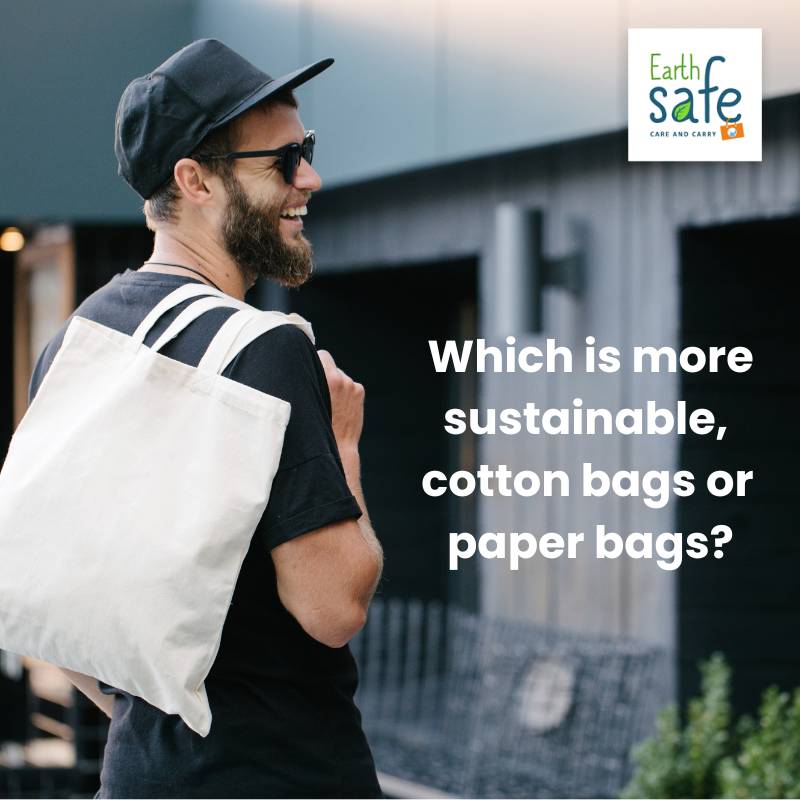
Which is More Sustainable, Cotton Bags or Paper Bags?

In our quest for sustainability, the choice of bags we use for shopping has become a pressing concern. Cotton bags and paper bags have emerged as popular alternatives to single-use plastic bags. But which of these options is truly more sustainable?
Let’s delve deeper into the environmental impact of cotton bags and paper bags to find out.
Cotton bags, often touted as eco-friendly alternatives, have gained significant popularity in recent years. They possess several sustainable attributes. First, cotton is a renewable resource, and the cultivation of cotton plants requires less water compared to other crops. Sustainable cotton bags are also durable and can withstand multiple uses, reducing the need for constant replacements. Additionally, cotton bags can be recycled, repurposed, or composted at the end of their life cycle.
Paper bags, made from renewable resources like trees, are often perceived as more eco-friendly. They are biodegradable and decompose relatively faster than plastic bags. However, the production of paper bags involves a resource-intensive process that requires significant amounts of water and energy. The production also contributes to deforestation, loss of habitat, and carbon emissions. Despite being recyclable, the recycling process itself can be energy-intensive.
Determining the most sustainable option between cotton bags and paper bags is not straightforward. It depends on various factors such as the bag’s lifespan, the energy and resources used in production, and the recycling infrastructure available in a particular region. Both options have their pros and cons. However, it is crucial to emphasize that the most sustainable choice is to use a bag repeatedly, regardless of its material.
When it comes to the sustainability of cotton bags versus paper bags, there is no definitive answer. Cotton bags offer durability and the potential for recycling, while paper bags are biodegradable but have a higher environmental impact during production. By making conscious choices and embracing the reuse culture, we can collectively contribute to a greener and more sustainable future.


